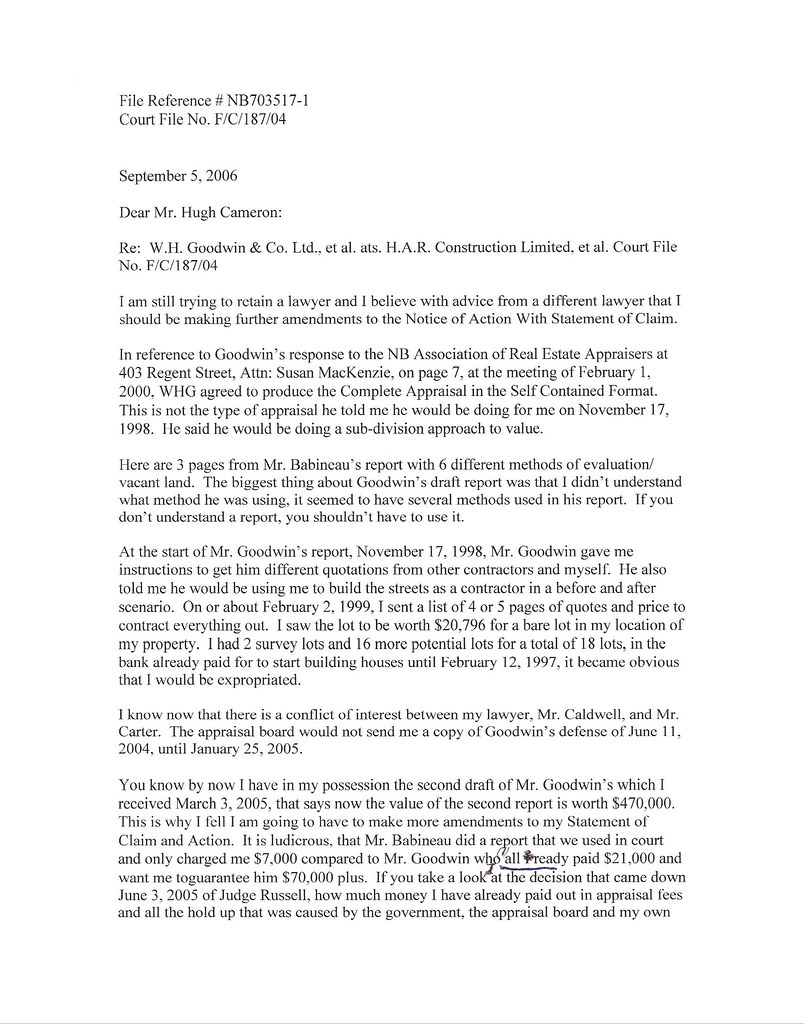In
My Department is looking at the need for a
We can use more of these Courts that specialize in people that offer specialized staff, resources and treatment.
T.J. Burke4 comments ![]()
Thursday, March 20, 2008
Throw the Book at him! No - I mean literally.
"... it's simply wrong to always order [kids] to stop that fighting. There are times when one child is simply defending his rights and damned well should be fighting."
Erma Louise Bombeck
The wrongfully convicted. It's an horrible travesty for any person who must experience prosecution by the State for a crime they did not commit. Thus far, we have seen remarkable examples of cases where such injustice has occurred causing the Federal Government to amend the Criminal Code of Canada by enacting special sections that provide for an application to be made to the Federal Minister of Justice/Attorney General to remedy a possible wrongful conviction.
Some of the more infamous cases that stand out in recent memory are James Driskell, who was found guilty of the 1990 murder of Perry Harder. Paroled in 2003, Driskell was acquitted after DNA samples were shown not belonging to the victim that were allegedly matched to hair samples in his vehicle. David Milgaard was sentenced in 1970 to life imprisonment for the 1969 murder of
A wrongful conviction does not always mean the accused is innocent of the crime. It can simply mean the accused did not receive a fair trial due to an improper characterization of evidence, unreliable testimony, problems with Crown disclosure, police misconduct or wrongful identity. Take the Steven Truscott case for example.
Prior to
It's an interesting Justice system we have. Some people think it's horrible and failing society while others see it as a fundamental tool to democracy. I am a firm believer in the latter. Without law, there is no order and without order there is no justifiable democratic society.
T.J. Burke3 comments ![]()
Monday, March 17, 2008
The Thick Skinned Politician
In political life you're expected to have thick skin. So the saying goes: if you dish it out you better be able to take it! Fair ball.
I sincerely believe that most people put their names forward for public office with the best interests of their Community, Province or Country in mind. Unfortunately, some fall into the grasp of personal greed, profit and corruption. The large majority of politicians serve with dignity and do great things for their respective riding's. Some sit on their rear-ends, collect a pay cheque and do nothing. Generally, people tend to give politicians an ear full when tough decisions have to be made. This became clear after last Friday's announcement concerning Education Minister Kelly Lamrock's plan for universal french language training in
Personally, I have had quite a few angry parents calling me at home, on my cell, at my office and emailing. They say things like idiotic, moronic and a few choice words that I won't repeat on this site. What boggles my mind is the manner in which people call and feel they can express themselves. I don't mind a hot debate but it should be informed. I don't mind people expressing themselves but it should be dignified. A good friend of mine was with me this weekend when a lady stopped me in a public store and began yelling at me over this decision and how Government destroyed her child's future. After letting her vent we carried on with our business. My friend says to me - can you imagine if someone came up to me and carried on like that because they didn't like the business decision my company made?
I think his point was that this rarely happens in the private sector and if it does few people call up the CEO and lace them with personal insults and threats of non-renewal (when I say this I am not thinking of the Irvings - that's for you Charles). It's an interesting point when you think about it. Apparently, when you get elected it allows the public, at any time, regardless of who is with you (kids, wife, mother) it doesn't matter, to berate you over their beliefs or opinions while you sit there with a smile on your face.
Hmm. Strange job. I wonder how often it happens in the private sector? How many people would simply smile and listen while someone feels it's time to give them hell in front of their family for whatever reason. Most people are decent enough not to act in this manner but there are quite a few that aren't. Anyhow, I enjoy it.
Another saying should be added to the thick skinned politician repetoire, one that Stuart Jamieson told me years ago - you wanted the job, your ran for the job, you got the job, now do the damn job!
Thanks -
T.J.
T.J. Burke20 comments ![]()



 reflex
reflex










